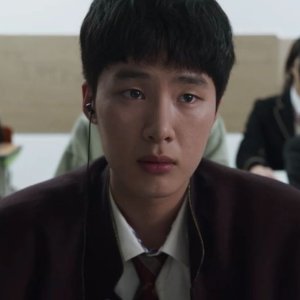The Art of Suffering: The Glory is Revenge at Its Most Human
K-dramas have long played in the sandbox of revenge thrillers, but The Glory doesn’t just enter the genre. It brands it with the heat of righteous fury. Led by a career-redefining performance from Song Hye-kyo, this drama is not merely a tale of vengeance. It’s a haunting meditation on trauma and survival.
At the center of the storm is Moon Dong-eun, a former high school student whose life was shattered by vicious bullying. Years later, she returns. Not as a victim, but as the architect of a revenge plan, calculated to the last detail. Song Hye-kyo’s portrayal of Dong-eun is nothing short of mesmerizing. Known mostly for her romantic leads, here she strips herself of all softness. Her performance is cold, precise, and at times, unsettling in its restraint.
There’s a quiet, smoldering power in the way she moves, speaks, and watches. She doesn't cry. She studies. She doesn't scream. She plots. It's a masterclass in minimalist acting, and easily one of the strongest performances in her career to date.
While Dong-eun anchors the emotional weight of the series, one of the most unexpectedly compelling characters is Kang Hyeon-nam, played by the ever-brilliant Yeom Hye-ran. Initially introduced as a battered housewife looking to hire Dong-eun as a vigilante, Hyeon-nam quickly evolves into so much more. She becomes both accomplice and conscience, her quiet resilience slowly morphing into bold defiance.
What makes Hyeon-nam stand out is her unvarnished humanity. She is raw, broken, and terrified, but also funny, sharp, and deeply loyal. Her motivation isn’t abstract justice, but the very real, immediate desire to protect her daughter. In a series steeped in cold calculation, she is the emotional lifeline, grounding the plot.
Yeom Hye-ran delivers one of the series’ most heartfelt performances, imbuing her character with empathy and grit in equal measure. The evolution of her relationship with Dong-eun, from transactional partnership to something resembling chosen family, is a quiet highlight of the series.
Where The Glory excels is in its pacing and atmosphere. Writer Kim Eun-sook dives into far darker territory here. There are no whimsical gods or sweeping romances like his other works. Only fractured people, morally ambiguous choices, and an undercurrent of pain.
The pacing is deliberate, and some may find it slow. But it’s a necessary burn. Every episode pulls back a new layer. Of Dong-eun’s trauma, of her antagonists’ rot, and of the broader societal systems that allow abuse to fester. The show doesn’t ask for patience. It demands it.
The bullies, now successful adults, are portrayed not as cartoonish villains but as deeply broken people. Entitled, cruel, and often terrifying in their casual indifference. Lim Ji-yeon, as the ringleader Park Yeon-jin, is particularly chilling. Her glossy public persona is a perfect mask for a venomous core. Watching Dong-eun dismantle her life, piece by piece, is disturbingly satisfying.
But The Glory doesn’t allow you to cheer too easily. Revenge here is not clean or empowering. It’s messy, dehumanizing, and costly. The show constantly asks: what’s left of you once you’ve given everything to vengeance?
Director Ahn Gil-ho uses muted palettes, long silences, and oppressive stillness to craft a world where the past is inescapable. The show's cinematography reinforces Dong-eun’s alienation at every turn. Empty hallways, harsh lighting, and stark, clinical interiors frame her existence as one of emotional exile. Even moments of human connection feel dangerous.
The Glory is not a feel-good drama. It doesn’t reward your patience with catharsis, at least not in the traditional sense. It’s slow, methodical, and deeply disturbing, but in all the ways it intends to be. It’s a story about how some wounds never heal, how justice and revenge are often indistinguishable, and how carrying a torch for too long can burn you from the inside out.
At the center of the storm is Moon Dong-eun, a former high school student whose life was shattered by vicious bullying. Years later, she returns. Not as a victim, but as the architect of a revenge plan, calculated to the last detail. Song Hye-kyo’s portrayal of Dong-eun is nothing short of mesmerizing. Known mostly for her romantic leads, here she strips herself of all softness. Her performance is cold, precise, and at times, unsettling in its restraint.
There’s a quiet, smoldering power in the way she moves, speaks, and watches. She doesn't cry. She studies. She doesn't scream. She plots. It's a masterclass in minimalist acting, and easily one of the strongest performances in her career to date.
While Dong-eun anchors the emotional weight of the series, one of the most unexpectedly compelling characters is Kang Hyeon-nam, played by the ever-brilliant Yeom Hye-ran. Initially introduced as a battered housewife looking to hire Dong-eun as a vigilante, Hyeon-nam quickly evolves into so much more. She becomes both accomplice and conscience, her quiet resilience slowly morphing into bold defiance.
What makes Hyeon-nam stand out is her unvarnished humanity. She is raw, broken, and terrified, but also funny, sharp, and deeply loyal. Her motivation isn’t abstract justice, but the very real, immediate desire to protect her daughter. In a series steeped in cold calculation, she is the emotional lifeline, grounding the plot.
Yeom Hye-ran delivers one of the series’ most heartfelt performances, imbuing her character with empathy and grit in equal measure. The evolution of her relationship with Dong-eun, from transactional partnership to something resembling chosen family, is a quiet highlight of the series.
Where The Glory excels is in its pacing and atmosphere. Writer Kim Eun-sook dives into far darker territory here. There are no whimsical gods or sweeping romances like his other works. Only fractured people, morally ambiguous choices, and an undercurrent of pain.
The pacing is deliberate, and some may find it slow. But it’s a necessary burn. Every episode pulls back a new layer. Of Dong-eun’s trauma, of her antagonists’ rot, and of the broader societal systems that allow abuse to fester. The show doesn’t ask for patience. It demands it.
The bullies, now successful adults, are portrayed not as cartoonish villains but as deeply broken people. Entitled, cruel, and often terrifying in their casual indifference. Lim Ji-yeon, as the ringleader Park Yeon-jin, is particularly chilling. Her glossy public persona is a perfect mask for a venomous core. Watching Dong-eun dismantle her life, piece by piece, is disturbingly satisfying.
But The Glory doesn’t allow you to cheer too easily. Revenge here is not clean or empowering. It’s messy, dehumanizing, and costly. The show constantly asks: what’s left of you once you’ve given everything to vengeance?
Director Ahn Gil-ho uses muted palettes, long silences, and oppressive stillness to craft a world where the past is inescapable. The show's cinematography reinforces Dong-eun’s alienation at every turn. Empty hallways, harsh lighting, and stark, clinical interiors frame her existence as one of emotional exile. Even moments of human connection feel dangerous.
The Glory is not a feel-good drama. It doesn’t reward your patience with catharsis, at least not in the traditional sense. It’s slow, methodical, and deeply disturbing, but in all the ways it intends to be. It’s a story about how some wounds never heal, how justice and revenge are often indistinguishable, and how carrying a torch for too long can burn you from the inside out.
Was this review helpful to you?





